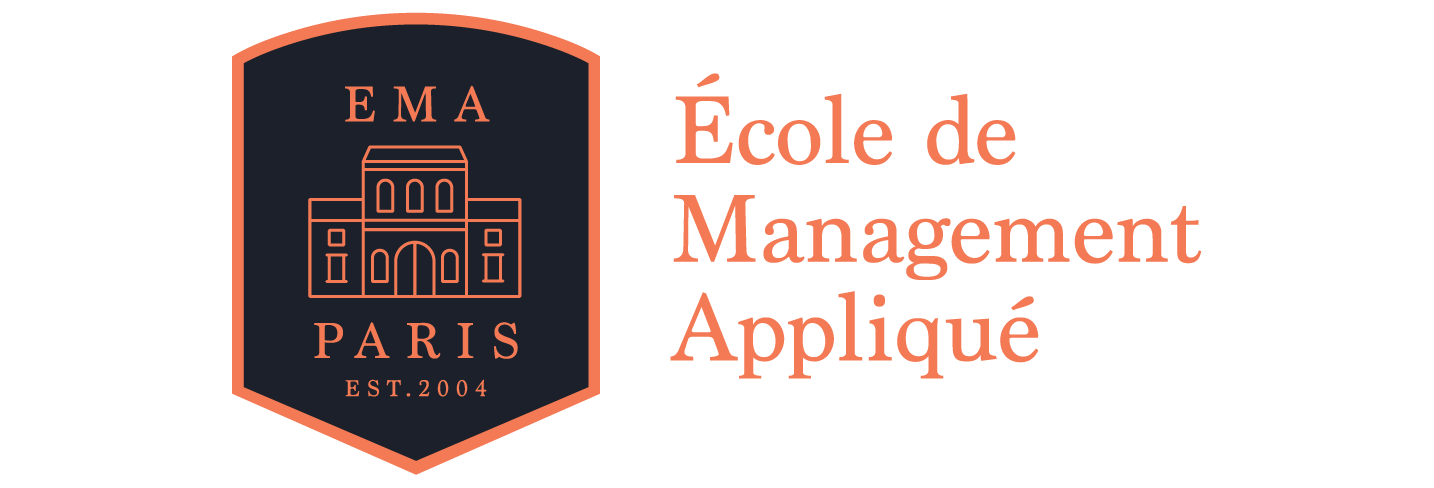Admission typically requires a strong Master’s degree, including a dissertation. Do not miss to include letters of recommendation.
As economies evolve, the demand for skilled economists who can analyse complex data,
develop policies and address pressing global challenges continues to grow.
The significance of pursuing a Ph.D. in Economics cannot be overstated. In today's world,
economic research is crucial in addressing pressing issues such as inequality, climate
change and practical policy development. A Ph.D. equips you with advanced analytical
skills and deep knowledge of economic theories, enabling you to contribute meaningfully
to these discussions.
Moreover, pursuing a Ph.D. in France offers unique opportunities. The country boasts a
rich academic tradition and is home to renowned institutions that foster innovative
research. This blog aims to guide you through the essential steps of preparing for a Ph.D.
in Paris, understanding the educational landscape and selecting the right research topic.
Get ready to set yourself up for success on this rigorous yet rewarding journey.
Steps to choose a research topic for Ph.D. in Economics:

Ph.D. in Paris. A well-chosen topic can set the foundation for your entire doctoral journey.
Here are detailed steps to help you make this critical decision:
Understanding your interests
Self-reflection
Begin by engaging in self-reflection. Consider what areas of economics excite you the most. Ask yourself questions like:
- What topics have I enjoyed studying in my previous coursework?
- Do specific economic issues resonate with my values or experiences?
Identify passion projects
Think about past projects or assignments that sparked your interest. These passion projects can provide valuable insights into what you want to explore further during your PhD.
Consider career goals
Align your research interests with your long-term career aspirations. Whether you envision a future in academia, government policy making, or private-sector consulting,choosing a relevant research area will enhance your employability after graduation.
Exploring the current economic landscape
Review recent literature
Conduct thorough literature reviews to identify current trends and gaps in economic research. Focus on recent publications from leading economics journals and working papers from reputable institutions.Pay attention to emerging topics gaining traction within
the academic community.
Follow economic news
Stay updated on global economic events through reputable news sources and financialreports. Understanding real-world challenges can inspire relevant research questions.Consider how contemporary issues—such as inflation, unemployment, climate change,
or technological advancements, can inform your research focus.
Attend conferences and seminars
Participate in academic conferences, workshops and seminars where economistsdiscuss their latest findings. Networking with other researchers can provide valuableinsights into trends and potential research gaps.
Utilise online resources
Explore online databases like Google Scholar, SSRN (Social Science Research Network)and IDEAS (Internet Documents in Economics Access Services) to discover ongoingresearch projects and popular topics within the economics community.
Engage with policy discussions
Consider how economic theories apply to policy-making by engaging with think tanks orpolicy-oriented organisations. Understanding policy debates can help identify practicalresearch areas that have real-world implications.
Common challenges and how to overcome them?
Pursuing a Ph.D. in Economics can be rewarding but comes with a certain set of challenges. Recognising these obstacles early on will better prepare you for success:
1. Isolation and lack of support
- Challenge: Many Ph.D. students experience feelings of isolation due to the independent nature of their research.
- What you can do: Build a support network by actively seeking peers, faculty and mentors who can provide emotional and academic support. Joining study groups or attending departmental events fosters connections.
2. Time management
- Challenge: Balancing research, coursework, teaching responsibilities and personal life can be overwhelming.
- What you can do: Create a structured schedule that allocates specific time blocks forvarious activities. Prioritise tasks based on deadlines and importance.
3. Funding issues
- Challenge: Securing funding for research can be competitive.
- What you can do: Explore multiple funding sources such as scholarships, grants, fellowships and assistantships offered by universities or private organisations.
4. Conflict with supervisors
- Challenge: Disagreements regarding research direction can hinder progress.
- What you can do: Establish clear communication to align goals with supervisors by scheduling regular meetings to discuss expectations and concerns.
5. Difficulty choosing a research topic
- Challenge: Identifying a unique topic can be daunting.
- What you can do: Conduct thorough literature reviews to identify gaps in existingresearch that pique your interest.
6. Academic pressure and stress
By proactively addressing these challenges, you will be better equipped to navigate the complexities of your Ph.D. in Paris while maintaining your well-being
Choosing right topic and research area for Ph.D.
in Paris
Selecting the right research topic for your Ph.D. in Paris is crucial for ensuring a successful academic journey. Here’s how you can approach this decision:
Self-assessment:
Reflect on your academic background, interests and career goals to determine what areas of economics excite you.
List potential topics : Create a list of topics that interest you based on your reflections and prior coursework.
Conduct preliminary research
Explore and review existing literature to identify gaps in research and current economic trends. This can help narrow down your focus.
Review Ph.D. topics : Look at suggested Ph.D. topics from various sources to inspire your ideas.
Evaluate feasibility
Ensure that the chosen topic is manageable within the timeframe of your Ph.D. programme while still being significant enough to contribute to the field.
Resources required : Assess the availability of data, funding and resources needed to pursue your research effectively.
Seek guidance from experts
Discuss your ideas with professors or advisors who can provide valuable insights and feedback on your proposed topics.
Engage with peers : Collaborate with fellow students to share ideas and gather diverse perspectives on potential research areas.
Refine your topic
Based on expert feedback, refine your topic to ensure it is specific and relevant.
Develop a thesis proposal : Prepare a proposal outlining your research questions, methodology and expected contributions to the field; this helps clarify your focus.
Stay updated on economic trends
Follow current events and stay up to date on economic developments and policy discussions that may influence your research area.
Participate in conferences: Attend academic conferences and seminars to network with researchers and gain insights into trending topics in economics.
By following these steps, you can choose a research topic that aligns with your interests and current economic challenges while leveraging expert guidance.
Enrolling into a Ph.D. in Economics with EMA in Paris:

Embarking on a Ph.D. in Economics is a transformative step in your academic and professional journey. At École de Management Appliqué (EMA), you will benefit from an exceptional educational experience that will bridge the gap between academic excellence and practical industry insights.
EMA provides an environment that fosters innovation, nurtures talent and equips students with the skills to excel in the competitive global economy. Here’s why EMA is the ideal destination for your Doctorate in Economics:
A world-class academic foundation:
At EMA, academic rigour meets real-world application. With faculty holding Ph.D. in Economics, Finance and Law, you will receive mentorship from leading experts actively engaged in the industry.
Key Highlights:
- Specialised courses offered in both English and French.
- A focus on practical learning through internships, research roles and hands-on projects.
- Access to a global network of professionals and academics.
Immersive learning in Paris
EMA’s location in Paris, a vibrant cultural and economic centre, offers unparalleled opportunities for Ph.D. students.
Why EMA Paris stands out:
- A gateway to European markets, thanks to the Schengen visa.
- A city steeped in art, history and intellectual legacy.
- Opportunities to immerse yourself in France’s rich cultural heritage while expanding your global outlook.
Personalised attention and inclusive education
With small group sizes, EMA ensures personalised mentorship, fostering a nurturing environment where every student feels valued. Whether refining your thesis or collaborating on cross-disciplinary research, you will receive dedicated support tailored to your academic needs.
EMA’s unique approach:
- A “home away from home” ethos that creates a welcoming atmosphere for students from diverse backgrounds.
- Multilingual learning in English and French, promoting global connections.
- Affordable tuition and scholarships, making quality education accessible.
Career empowerment and networking opportunities
EMA is committed to making students job-ready from day one. By blending academic excellence with hands-on industry experience, the college prepares Ph.D. candidates to excel in competitive markets>
Career-focused benefits at EMA:
- Exclusive access to industry workshops and professional events.
- Networking with global exposure.
- A robust student community to support lifelong career growth.
Why choose EMA for your Ph.D. in Economics?
Pursuing your Ph.D. at EMA combines academic rigour, practical experience and cultural immersion, creating a holistic educational journey. With EMA’s commitment to excellence and innovation, you will graduate with the expertise and confidence to lead in economics.
Apart from this Doctorate in Economics at EMA offers:- Ph.D. in Paris with EMA opens doors of versatile opportunities.
- Comprehensive curriculum enriched by legal and economic perspectives.
- Language courses tailored for beginners in French and advanced learners of English.
- Great value for money, offering high-quality education at competitive prices
- Exclusive events, workshops and industry connections ensure you graduate ready to excel, equipped with the confidence and expertise to achieve your ambitions.
Embarking on a Doctorate in Economics is an exciting, yet challenging journey filled with opportunities for personal growth and impactful contributions to society through economic research. At EMA, we transform lives through education. We combine academic excellence with real-world impact through internships, research roles and hands-on projects. EMA empowers your career journey with lifelong guidance, skill development, and a robust professional network. If you are considering pursuing this rewarding journey at EMA Paris, act today!
Explore our innovative Ph.D. Economics and make a meaningful difference across societies worldwide!Frequently asked questions about French phrases
1. What is required for admission into a Ph.D. programme?
2. . How long does it take to complete a Ph.D.?
The average duration is three years but may vary based on individual progress through coursework and dissertation completion timelines.
3. What are typical career paths after obtaining my degree?
Graduates often pursue careers as university professors or researchers but may also work within governmental agencies or private sector firms focusing on economic analysis or consulting roles.
4. What financial aid options are available?
You can receive a scholarship of up to 40% for the January 2025 intake, covering your first year's tuition fees. This scholarship is awarded based on academic excellence or any outstanding achievements you have secured in extracurricular activities.
5. How do I select my thesis supervisor?
Students typically meet faculty members during initial orientation sessions, where they discuss potential topics before formally selecting supervisors based upon mutual interests aligned closely throughout respective fields studied extensively beforehand.

 Brochure
Brochure
 Apply Now
Apply Now